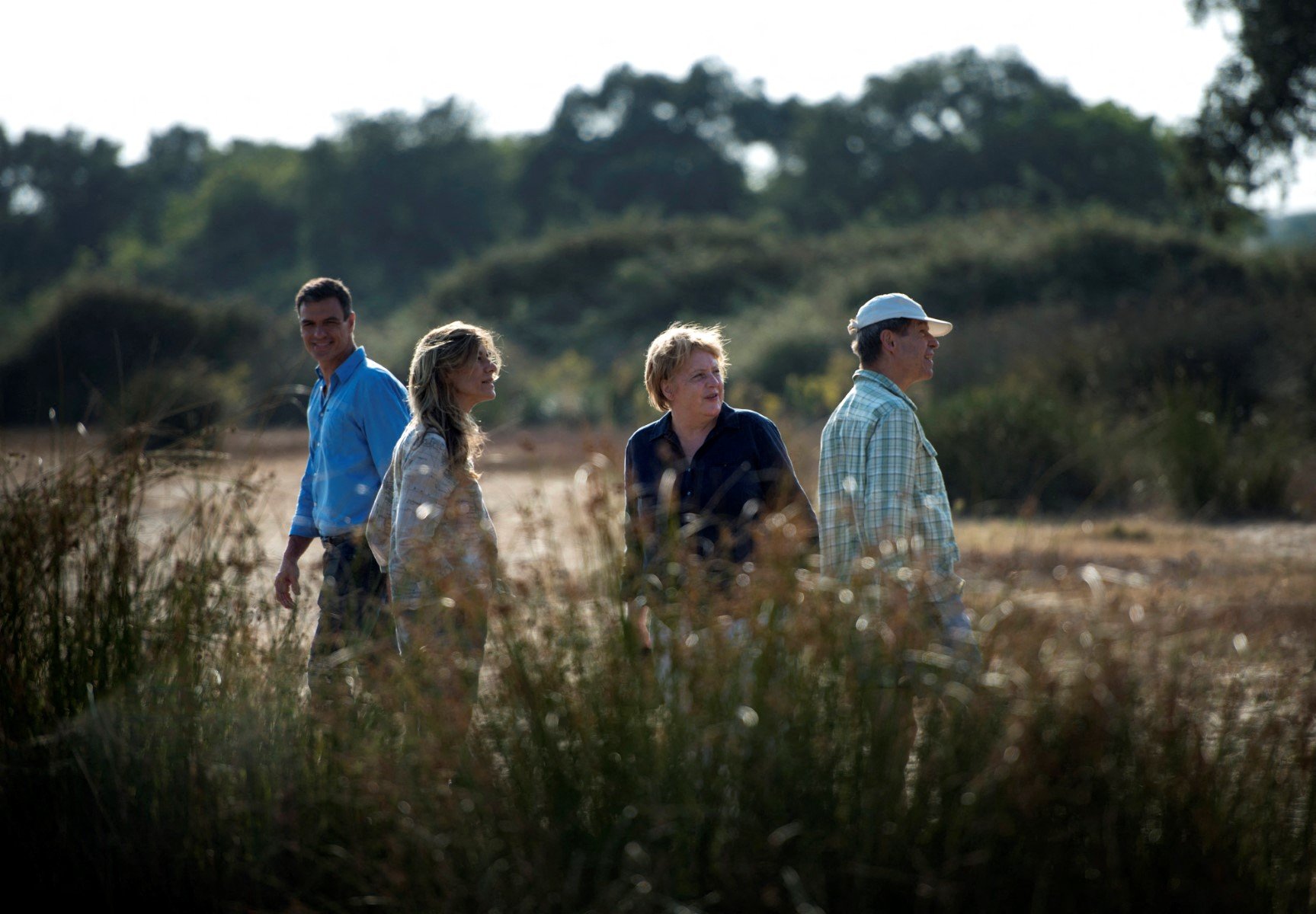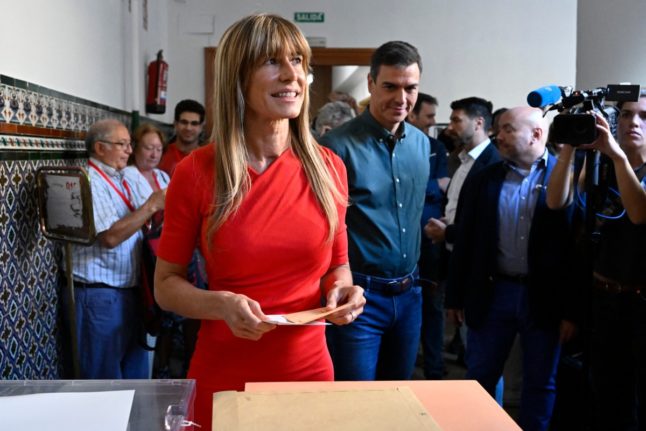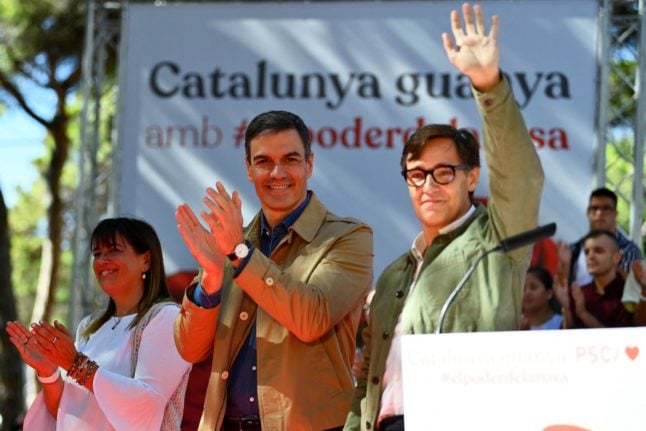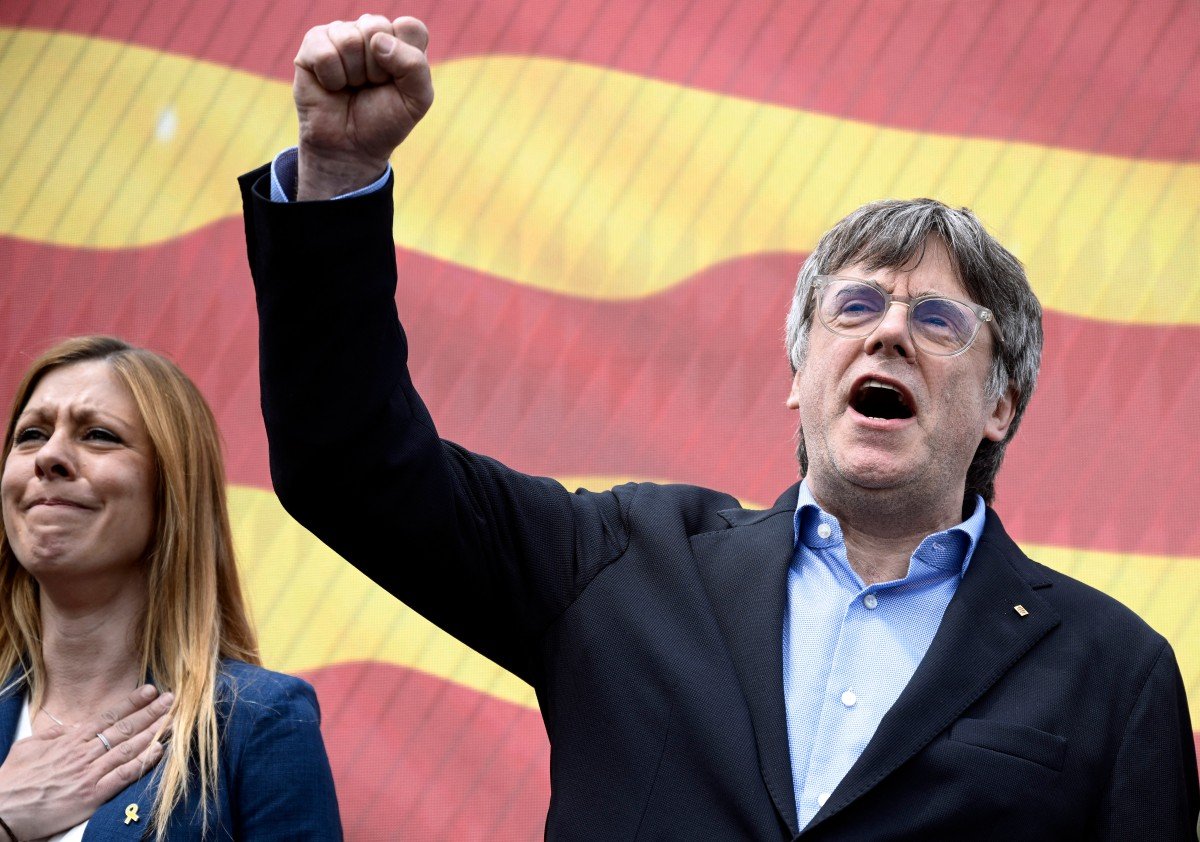“We are a team, and as a team we row in the same direction,” Gómez, 49, said during a 2016 television interview.
The couple put that unity on display after a Madrid court said Wednesday that it had opened a preliminary investigation into Gómez for suspected influence peddling and graft.
The move came in response to a complaint from the anti-corruption group Manos Limpias (Clean Hands), which is close to the far right.
Sánchez swiftly announced that he was suspending his duties to assess whether he would remain in office.
READ ALSO: What happens and who takes over if Spain’s Prime Minister resigns?
“I am not naïve. I am aware that they are bringing charges against Begoña, not because she has done anything illegal, because they know full well that’s not true, but because she’s my wife,” he said in a four-page letter posted on X.
“We often forget that behind politicians there are people. And I’m not ashamed to say it, I’m a man who is deeply in love with his wife,” Sánchez added, saying his wife was the victim of constant “mudslinging”.
Fundraising
Born in 1975 in Bilbao in Spain’s northern Basque Country, Gómez is under investigation because of her ties to several private companies that received government funding or won public contracts.
Online news site El Confidencial said she had met twice with Javier Hidalgo, CEO of the Spanish tourism group Globalia which owns Air Europa, when the carrier was in talks with the government to secure a huge bailout after the plunge in air traffic due to the Covid-19 crisis.
At the time, Gómez was running IE Africa Center, a foundation linked to Madrid’s Instituto de Empresa (IE) business school, which signed a sponsorship agreement with Globalia in 2020. Gómez left the post in 2022.
With a degree in marketing from Madrid’s private university Esic and a master’s in management, Gómez has specialised over the years in fundraising, particularly for foundations and NGOs.
Her career has taken her to a number of positions, including at business consultancy Inmark Europa and at Madrid’s Complutense University.
Gómez, who frequently appears at the helm of Women’s Rights Day marches on March 8th, did not want to give up this career when her husband became prime minister in 2018.

‘Independent woman’
She and Sánchez have been a couple since the early 2000s after they met at a mutual friend’s birthday party.
She has accompanied his political rise, appearing at key events such as election night, but without exposing herself too much in the media. They have two teenage daughters.
Spain is a parliamentary monarchy with a king who is head of state, and there is no rank or special protocol for the spouses of the head of government, which can let them play a discreet role if they choose.
“Thanks to her, I have more strength,” Sánchez, a self-declared feminist, once said during a TV interview.
He has also often complained that Gómez is the victim of a steady stream of “false information”.
Like Brigitte Macron of France and former US first lady Michelle Obama, Gómez has been the target of fake news on social media suggesting she is actually a man.
READ MORE: Wife of Spain’s PM sues TV host for suggesting she is transsexual
Other online stories falsely claim she was fired from her job at Complutense University.
Spain’s Deputy Prime Minister Maria Jesus Montero defended Gómez on Thursday, calling her “a modern, professional, independent woman”.
Montero, who is also budget minister, also said the right would prefer that Gómez “stay at home” and that “women should stay out of public life”.




 Please whitelist us to continue reading.
Please whitelist us to continue reading.
Member comments